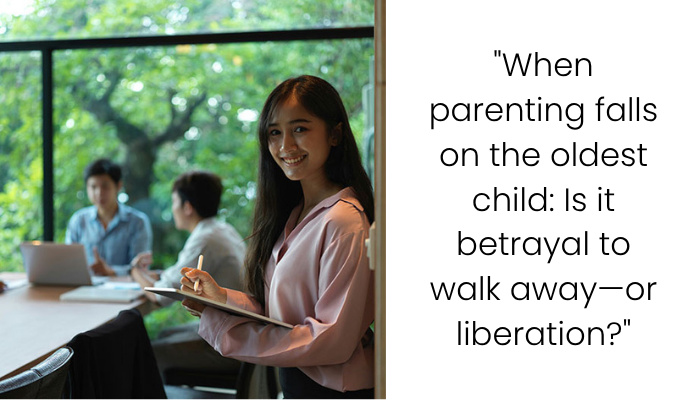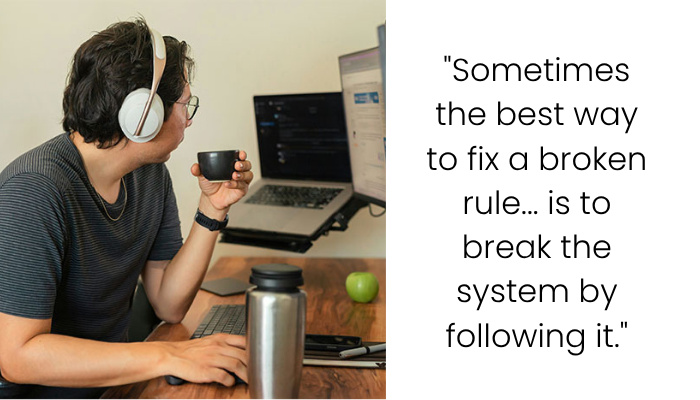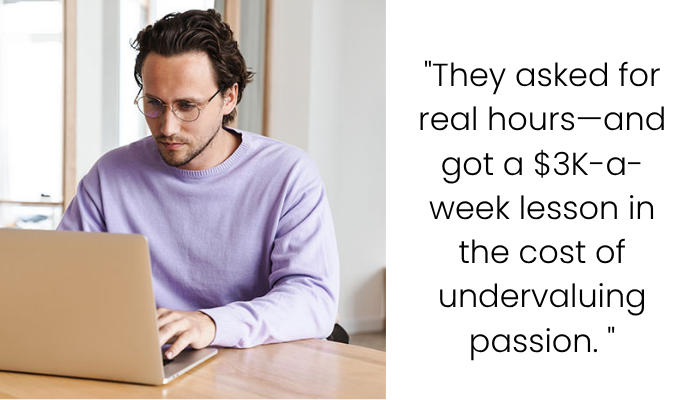Woman Has Had Enough Of Babysitting Half-Siblings For Free, Leaves Parents’ Home Secretly

At just 20 years old and deep into her university studies, OP has been more than just an older sister—she’s been her parents’ unpaid, unacknowledged live-in nanny. With siblings aged 4 and 2, her daily routine included everything from school drop-offs to feedings and care—often at the cost of her own social life and academic freedom. She’s worked nights, saved diligently since high school, and finally decided it was time to live life on her own terms. The response? Outrage.
Advertisement – Continue Reading Below
OP’s mother and stepfather were furious when she moved out while they were at work, leaving no forwarding address. They’ve bombarded her with hostile messages and accused her of betrayal. Still, OP stands firm in her decision. She feels less stressed, finally free, and is hopeful that someday, her mother will see that it was never her job to raise children that weren’t hers. The emotional toll, especially with a controlling stepfather in the mix, made staying not only unhealthy—but unsustainable.
The author of the post is a 21-year-old woman who had been living with her parents until recently

The author’s mom and her stepfather had two younger kids, so they put the burden of taking care of them onto the author’s shoulders











The Eldest Daughter Syndrome and “Parentification”
Advertisement – Continue Reading Below
What OP experienced is a textbook case of parentification, a psychological term for when children or adolescents take on roles and responsibilities typically meant for parents. According to a study published in the Journal of Family Psychology (Chase, 1999), this role reversal—especially when unacknowledged or coerced—can lead to long-term emotional consequences including burnout, resentment, depression, and difficulty establishing boundaries later in life.
In particular, eldest daughters often bear the brunt of this phenomenon. A cultural and emotional bias persists in many families where the oldest child, especially if female, is expected to act as a third parent. This assumption is rarely questioned—until the child pushes back, as OP bravely did.
Legal and Ethical Dimensions
Advertisement – Continue Reading Below
Legally, OP had no obligation to stay. At 20, she’s an adult, and any expectation that she remain as free labor—especially when it impinges on her education and autonomy—is exploitative. Ethically, the situation gets murkier. Emotional guilt and familial duty are often weaponized to keep children “in their place,” especially in households with narcissistic or controlling dynamics.
It’s also worth noting that no formal custody or guardianship arrangement existed here. OP was not a legal caregiver; she was a sibling. The expectation that she give up her youth to care for her parents’ younger children, without compensation or choice, speaks volumes about how little her own individuality was valued in the household.

Family Dynamics and Narcissistic Control
Advertisement – Continue Reading Below
OP’s mention of her stepfather as a narcissist adds further context. Narcissistic parents (or stepparents) often use manipulation, control, and guilt to maintain dominance within the household. Telling OP she “can’t” move out is a red flag. It implies an ownership mentality and a desire to control her autonomy—common in toxic family systems.
Psychologists like Dr. Ramani Durvasula, an expert in narcissistic abuse, point out that individuals raised in such environments often struggle with guilt even when making healthy decisions. “Just because you were conditioned to prioritize others doesn’t mean your needs are less valid,” she writes. OP’s choice to leave, especially under stealth, reflects the emotional safety she lacked.
The Emotional Aftershock: Sibling Bond vs. Self-Preservation
Advertisement – Continue Reading Below
One heartbreaking aspect of this situation is OP’s separation from her younger siblings. This isn’t a cold abandonment—it’s a necessary boundary. It’s common for older siblings in parentified households to feel like they’re abandoning their “children” when they step away. But as painful as it is, stepping away is often the only path to healing.
In time, OP may rebuild her relationship with her siblings. Children grow, and with maturity, often come to understand the roles older siblings were forced into. For now, OP has to prioritize her own healing, education, and growth—none of which were possible while chained to surrogate parenthood.
Most commenters, however, claimed that the author did everything right, and her parents were just being toxic and entitled





Advertisement – Continue Reading Below






